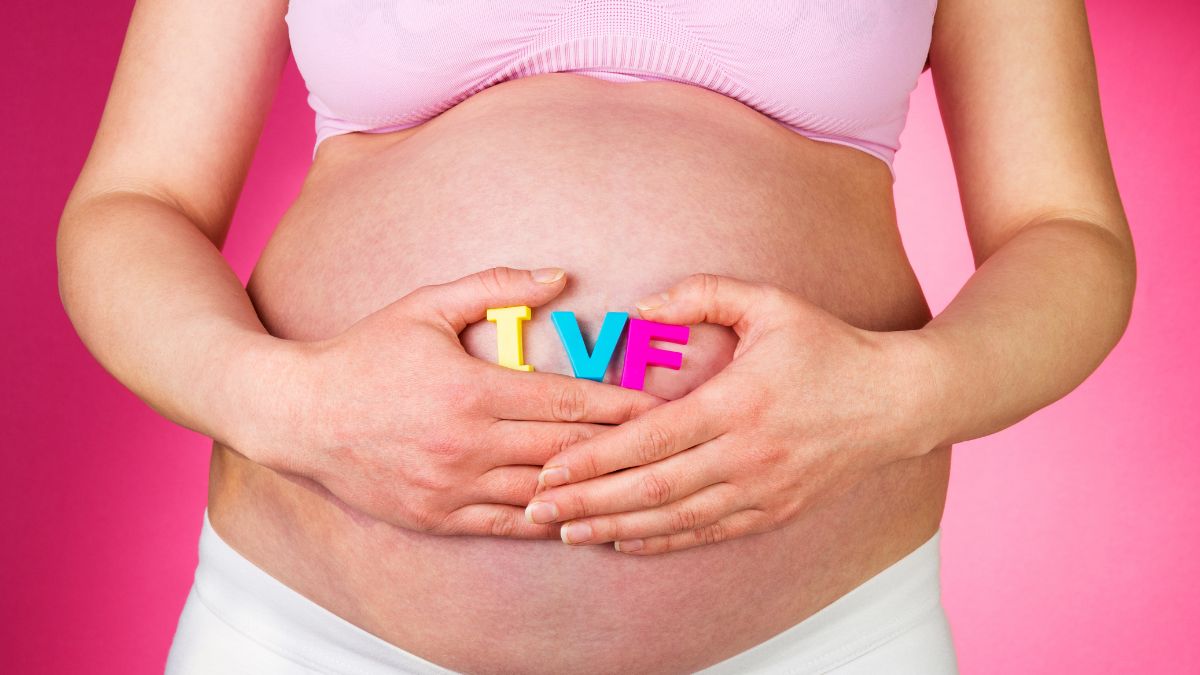- By Bornika Das
- Thu, 06 Nov 2025 02:40 PM (IST)
- Source:JND
Parenthood doesn’t always come easily for everyone. For many couples, the road to conceiving is often filled with uncertainty, longing and resilience. One of the greatest miracles of science-where hope and technology merge for childless couples-is the journey to parenthood through In Vitro Fertilisation, commonly known as IVF. IVF is a medical process that is well-structured, involving stages necessary for the successful conception of an individual. After months or even years of trying, IVF often proves to be a beacon of hope in the face of persistent challenges. Each stage, from ovarian stimulation and egg retrieval to fertilisation and embryo transfer, requires precision, care and perseverance.
Apart from the scientific procedures, IVF also requires emotional strength and patience, which makes it not only a scientific process but a life-changing transformation where modern medicine blends with deep emotional commitment. IVF is a process which should be undertaken gradually, step by step, with the guidance of a fertility expert. Each of the steps holds its own importance, as one needs continuous monitoring and personalised medical decisions at each step, so that couples have fair success rates. In conversation with The Daily Jagran, Dr Sonu Taxak, Director & Senior IVF Consultant, Yellow Fertility, shares five crucial stages that the IVF journey requires for a smooth parenthood.
Laying The Foundation For Your IVF Journey
A comprehensive assessment of your overall health is the first step towards an IVF journey. It includes fertility hormone tests, such as AMH (Anti-Müllerian Hormone), FSH (Follicle-Stimulating Hormone), LH (Luteinizing Hormone), as well as ultrasound scans to evaluate ovarian reserve, follicular health, and uterine condition. Dr Sonu Taxak states, “For the male partner, a semen analysis is conducted to assess sperm count, motility, and morphology.”
Recommended For You
ALSO READ: Millennials vs Gen Z: Doctor Explains How Two Generations Are Redefining Parenthood And IVF
Beyond the medical tests, this can be an extremely emotional phase. Couples may arrive carrying feelings of fear, stigma, or uncertainty. That’s why many leading IVF centres place equal importance on counselling and emotional support alongside diagnostics because IVF is a human experience. Dr Sonu Taxak mentions, “Helping patients feel seen, heard, and informed from the very first step lays the foundation for a comfortable journey ahead.”
Preparing The Ovaries For Success
Once a couple is medically cleared for IVF, the next step is ovarian stimulation. Throughout 8 to 12 days, the woman receives hormone injections designed to prepare the ovaries to produce multiple mature eggs, rather than the single egg typically released during a natural cycle.
Dr Sonu Taxak states, “This stage involves regular monitoring through ultrasounds and blood tests to track follicle growth and adjust medications if needed. The goal is to get a good number of healthy eggs, which increases the chances of a successful IVF cycle.” It’s a physically demanding phase that requires close supervision and is a significant milestone in the IVF timeline.

Crucial Stages Of IVF Journey For Parenthood (Image Credits: Canva)
How Eggs And Sperm Are Retrieved And Prepared For Fertilisation
Once the follicles are mature, egg retrieval is scheduled, known as Ovum Pick-Up (OPU). This procedure is performed under mild sedation and is typically painless. Using ultrasound guidance, the mature eggs are collected from the ovaries in a short outpatient procedure.
On the same day, the male partner provides a semen sample, which is then processed to select the healthiest sperm. In cases where sperm quality is a concern, techniques like ICSI (Intracytoplasmic Sperm Injection) may be used, where a single sperm is directly injected into each mature egg to facilitate fertilisation.
Creating And Nurturing Embryos In A Controlled Environment
The retrieved eggs and selected sperm are brought together in a state-of-the-art laboratory environment. Dr Sonu Taxak says, “There are leading fertility centres that culture these embryos in ISO-5 standard labs to ensure the highest level of control and cleanliness during the fertilisation process.”
After fertilisation occurs, the embryos are cultured and monitored over the next few days, typically up to Day 5, when they reach the blastocyst stage. Embryologists assess embryo growth, quality, and development during this period, selecting the most viable ones for transfer.
Final And Most Important Step
The final step is embryo transfer, a relatively quick, non-invasive procedure where a selected healthy embryo is placed into the uterus using a thin catheter. It’s usually painless and doesn’t require anaesthesia. Some embryos are also frozen for future use.
ALSO READ: IVF Success In India: Doctor Explains What Every Couple Needs To Know Before Starting
Dr Sonu Taxak states, “Following the transfer, a 10–12 day waiting period begins before a blood test is performed to confirm pregnancy. This is often the most emotionally intense part of the journey.” Despite the science and preparation behind it, outcomes can vary, making it crucial to manage expectations effectively.
With India’s IVF services market projected to grow at a CAGR of 16.23 per cent, reaching nearly USD 4.9 billion by 2034, it’s clear that assisted reproductive technologies are becoming increasingly vital in addressing fertility challenges. This growth reflects advancements in medical science and a societal shift toward awareness, accessibility, and acceptance. IVF, while complex, is not a one-size-fits-all treatment. It demands medical precision, emotional resilience, and compassionate care at every step. Because every dream of parenthood deserves a chance to become a reality.





